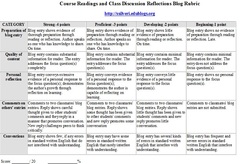These images could depict some of the main plot points of Chapters 17-24. While these moments are important, they are by no means the only significant points in these chapters.
|
Blog Post Rubric
Archives
February 2023
Categories
All
|
 RSS Feed
RSS Feed